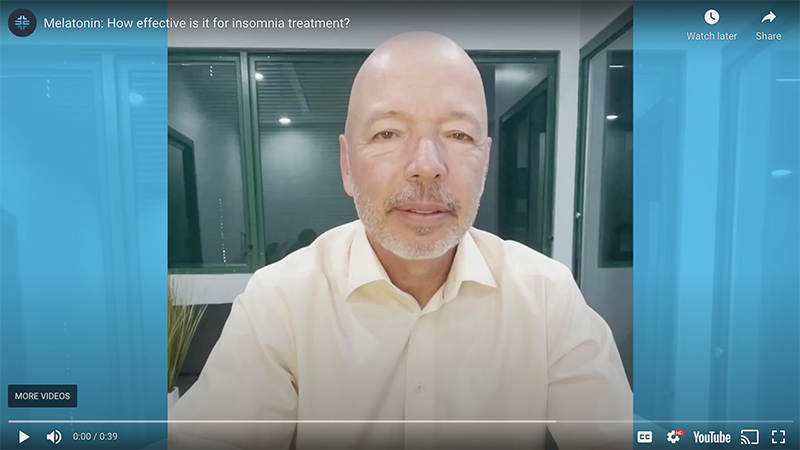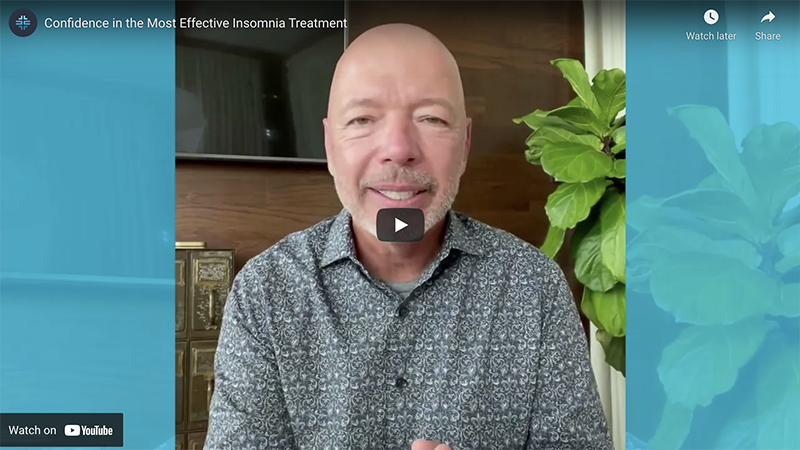Whenever you are having a difficult time sleeping, it can be tempting to use medication or prescription drugs to treat your insomnia. In the U.S., 4% of adults are using drugs to help with their sleeping problems. However, you need to be aware of how a sleep aid can affect you before you decide to use one. Studies have shown that there are some unsightly side effects to these medications. Below you’ll find a list of noteworthy pros and cons that come with using sleeping pills.
Are All Sleeping Aids the Same?
In short, no. There are a plethora of sleeping aids available to the public. When most people refer to “sleeping pills,” they are referring to hypnotics, like the popular brands Ambien or Lunesta. These are the sleeping medications we will be referring to when listing the pros and cons of sleeping medicine.
Some alternatives to hypnotics include sedating antihistamines (usually allergy medication), melatonin and valerian root.
Positive Side Effects of Sleeping Pills
You may be asking yourself, “Do sleeping pills actually work?” The answer is, it depends. With all over the counter medications, it is essential to consult with your doctor to see what form of treatment is the best solution for your problem. While cognitive-behavioral therapy for insomnia (CBTI) has shown proven results without the harsh side effects of a prescription, there are some cases where sleeping pills may be appropriate for your situation.
Sleep aids can be helpful for a short period.
If your insomnia is acute, a sleeping aid might be able to help you through a short-term sleeping problem. Sleeping medications are usually fast acting and will cause quick drowsiness.
Sleeping pills can help with circadian rhythm issues.
If you are experiencing jet lag, perform irregular shift work or have other sleep-timing issues, a sleeping pill can help your body to fall asleep at the time you need to sleep without having to wait for your body to adjust.
Negative Side Effects of Sleeping Pills
While a sleeping pill is a quick fix, it isn’t without its share of problems and adverse side effects. We recommend that you look for other ways to alleviate insomnia before using sleeping medications. Here are some of the reasons why sleeping pills can be bad for you.
Common Negative Side Effects
Most sleeping medications have a large number of side effects that come with use. Some of the most common ones are:
- Daytime drowsiness
- Dizziness
- Nausea and other gastrointestinal problems
- Memory problems
While there is a chance that you won’t get any of the listed effects, using an alternative, like CBTI, will reduce your chance of side effects to zero.
Sleeping pills can be addicting or create dependency
Sleeping medication is only for short-term treatment. If used over a long period, a person can become addicted or psychologically dependent on their effect on sleep. Prescription pill effects can wear off over time, which can lead to a dangerous increase in dosage.
Studies link sleeping pills to higher mortality rates.
A study on hypnotic sleeping drugs’ link to mortality revealed that patients who were prescribed hypnotics had a substantially elevated hazard of early death to their non-user counterparts. One of the key findings was that patients who used less than 18 doses per year experienced increased mortality. Increased cancer incidence was also prevalent among those with higher doses.
Sleeping pills show minimal positive health benefits.
A clinical review concluded that the next-day performance of sleep medication users was marginally better than before use. The average sleep time of most individuals on hypnotics was increased by minutes rather than hours.
When & How Should You Take Sleeping Pills?
If your doctor recommends that you take a prescription sleeping pill, it is critical to know when to use them.
- Follow your doctor’s exact instructions. Deviating from those instructions can cause a variety of complications.
- Only use sleeping pills right before going to bed. Sleeping pills don’t take long to start working and can quickly make you drowsy. Never operate any heavy machinery or motor vehicles after taking sleeping medication.
- Make sure you don’t have anything the morning after your first dose. When trying a sleeping medication, it is best not to have plans for the following morning. This way, you can see what side effects it will have on you without sacrificing your productivity.
- Have enough time to sleep. Only take sleeping pills if you have 7-8 hours allotted to sleep. Since these pills are designed for a specific amount of time, trying to wake up before then will leave you with heavy drowsiness.
- Do not mix sleeping pills and alcohol. Since both substances have sedating effects, mixing the two can exacerbate the side effects and cause the user to stop breathing in their sleep.
How to Sleep Better at Night Naturally
Most people who have trouble sleeping are dealing with deeper issues than not being tired enough or just feeling awake; there are external stressors or environmental factors. Here are a few tips that can help you to get a better night’s sleep, without sleeping pills.
- Practicing good sleep hygiene is the first step to achieving sleep success.
- Cutting late-in-the-day caffeine and electronic use before bed will help prepare your brain for sleep.
- Moderate exercise once a day can help to reduce stress levels and boost your mood, leading to better sleep.
- Keeping your bedroom dark, cool and quiet is vital for sleep success.
- Keeping the bedroom reserved for sleep and intimacy can help the brain to associate the bedroom with sleep better.
If you are looking for treatment for insomnia, contact one of our sleep experts today about cognitive behavioral therapy for insomnia and see how we can help you sleep better.


